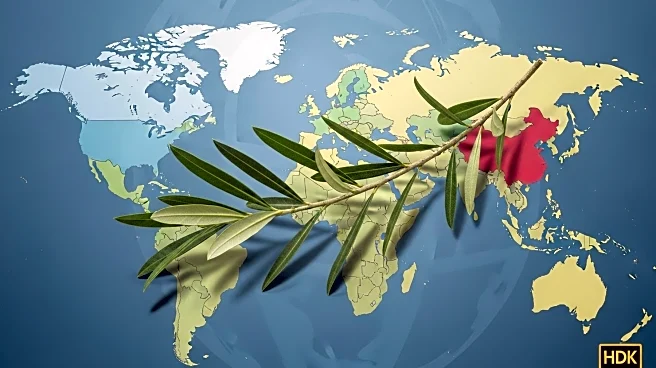What's Happening?
At the United Nations General Assembly, President Trump reiterated the U.S. position against recognizing a Palestinian state, despite recent recognition by Western allies such as Canada, the United Kingdom, and France. The U.S. stance contrasts with the growing international support for Palestinian statehood, reflecting differing diplomatic priorities and geopolitical considerations. The recognition by Western allies marks a significant development in international diplomacy, potentially influencing future negotiations and peace efforts in the Middle East.
Why It's Important?
The recognition of a Palestinian state by key Western allies highlights a shift in international diplomacy, potentially impacting peace efforts and regional stability in the Middle East. The U.S. position reflects longstanding policy considerations and alliances, with implications for its role in future negotiations. The differing positions among Western allies may influence diplomatic dynamics and negotiations involving Israel and Palestine, affecting regional security and international relations.
What's Next?
The recognition of a Palestinian state by Western allies may lead to increased diplomatic efforts and negotiations aimed at resolving the Israeli-Palestinian conflict. The U.S. may face pressure to reconsider its position, while regional stakeholders may engage in further discussions to address the implications of statehood recognition. The situation may influence future UN resolutions and international diplomatic engagements.
Beyond the Headlines
The recognition of a Palestinian state involves complex historical, political, and cultural dimensions. The differing positions among Western allies reflect broader geopolitical interests and challenges in international diplomacy. The situation may influence future discussions on peace efforts, regional security, and international norms regarding statehood and self-determination.









